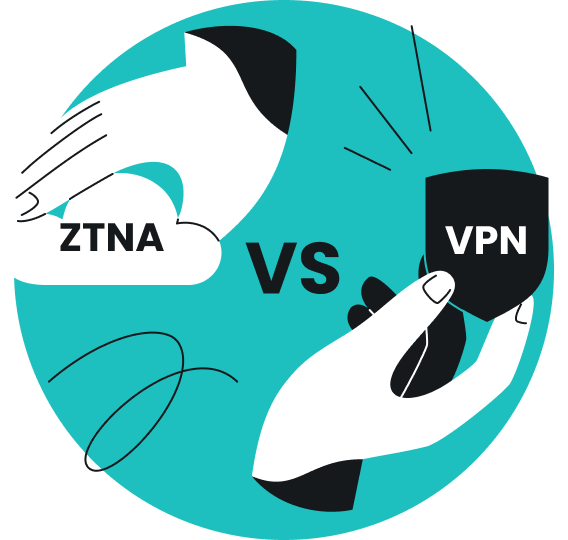Net neutrality has been among internet governance’s most hotly debated topics, engaging everyone from everyday internet users to tech megacorporations. At its core, net neutrality rules advocate keeping the internet open and accessible to everyone, but the questions of how we do that and whether we should at all remain highly controversial.
What is net neutrality?
Net neutrality is a principle that ensures equal access to all internet content, regardless of its source or type. Put simply, net neutrality prevents broadband providers from throttling internet speed based on the website or service being accessed.
This could take the form of favoring certain websites, blocking or slowing down others, or charging more for unrestricted access. The cost of bandwidth tiering would likely be borne by the user seeking fast access or the website owner wanting to provide a better experience.
Net neutrality has been a hotly debated issue for years. The first major set of net neutrality rules, introduced by the Federal Communications Commission (FCC) in 2015, reclassified internet service as a utility, thus imposing strict regulations on internet service providers (ISPs). However, in 2017, under a different administration, the FCC voted to repeal net neutrality.
The resulting Restore Internet Freedom Order added fuel to the debate over the future of internet freedom and consumer protections, with many lawmakers and consumer advocacy groups continuing to push for reinstating net neutrality rules.
In 2025, the future of net neutrality remains uncertain. Both sides present strong arguments for and against its adoption: advocates argue that net neutrality protects consumer rights, while opponents believe it creates burdensome and overreaching regulations on ISPs.
Pros of net neutrality
Net neutrality provides a range of benefits that are crucial to maintaining a fair and open internet. Let’s explore some of them:
1. Ensures equal access
By prohibiting ISPs from blocking content or slowing down certain websites, net neutrality ensures everyone can access the internet on equal terms. Whether you’re an individual browsing social media or a startup offering innovative online services, net neutrality protects your ability to access or provide content without interference from broadband providers.
Without net neutrality, ISPs can introduce paid prioritization, creating fast lanes for companies that can afford to pay more, while smaller businesses or less profitable websites experience slower load times. By preventing such practices, net neutrality promotes a level playing field and equal opportunities for all internet users and online businesses.
2. Encourages innovation
With net neutrality protections in place, smaller tech companies and startups can compete with larger corporations without having to worry about being outspent for faster internet speeds. This unrestricted environment has allowed the internet to develop amazingly over the years, giving rise to groundbreaking online services and new business models.
Allowing ISPs to charge for faster access could stifle innovation. While smaller companies might struggle to reach users, large, well-funded corporations would dominate the landscape entirely. Because net neutrality ensures all content flows equally across the network, the business ecosystem is incentivized to compete through innovation and diversity.
3. Protects consumer rights
Without net neutrality protections, broadband services could limit what users see and do online. ISPs could block or throttle access to certain websites or services based on their business interests, creating a barrier to free internet usage. This would lead to a less open internet, with users required to pay more for faster speeds or access to certain types of content.
By preserving the principles of net neutrality, internet users can maintain their freedom to access any online content they choose, without having to pay extra. Net neutrality ensures that ISPs cannot unfairly charge consumers for unrestricted access to the web.
4. Promotes free speech
By preventing ISPs from blocking or prioritizing content, net neutrality invites diverse viewpoints and open communication to thrive online. Without net neutrality, ISPs could have the power to suppress content based on their preferences or business relationships, censoring certain ideas or perspectives.
Net neutrality ensures that all voices can be heard, regardless of their financial power or influence. Maintaining an open platform for communication is critical to free speech, especially in a world where the internet serves as a primary medium for political discourse, social movements, and public debate.
5. Prevents monopolies and fast lanes
Net neutrality prevents large companies and ISPs from consolidating their power by favoring their own content or entering exclusive deals with certain providers.
Paid prioritization could lead to fewer options for consumers, as smaller or less profitable services would struggle to compete with those who can afford better access, further widening the gap between them. Net neutrality prevents such monopolistic practices by ensuring broadband providers treat all online content equally.
Cons of net neutrality
Net neutrality faces significant opposition from various stakeholders. Its critics argue that net neutrality regulations can have unintended negative consequences, particularly for internet service providers and infrastructure development:
1. Potential reduction in infrastructure investment
ISPs claim that net neutrality rules limit their ability to generate additional revenue. This, in turn, may constrain their capacity to invest in improving their networks.
ISPs argue that without the flexibility to adjust rates to levels of service, they lack the financial motivation to build faster, more reliable networks, especially in rural or underserved areas. Net neutrality advocates counter this claim, stating that broadband providers should invest in infrastructure as a basic part of their business, not contingent upon charging consumers extra money for premium services.
2. Increased government regulation
Opponents also worry that imposing net neutrality legislation would give regulatory bodies, like the FCC, too much power over how ISPs operate. This could open the door to broader government intervention in internet-related activities, which some critics believe could lead to government censorship or overreach under the guise of consumer protection.
Many believe that the internet developed amazingly without heavy-handed government intervention, and adding more government oversight could harm the natural innovation and growth of the online space.
3. Limits ISP business models
ISPs argue that net neutrality restricts their ability to offer differentiated services and explore new revenue streams.
Without the flexibility to create tiered services, such as faster lanes for premium customers or specialized business offerings, ISPs are forced to treat all internet traffic equally. While this is a positive for consumers who want equal access, it limits the ability of ISPs to experiment with different pricing models to provide services tailored to different market segments.
4. Reduced network innovation for ISPs
While it’s true that net neutrality protects innovation for online services, it could stifle ISPs’ ability to develop new and more efficient ways to manage internet traffic. Under net neutrality rules, ISPs are prohibited from prioritizing certain types of content, even if doing so would result in a better user experience.
For example, real-time video streaming requires more bandwidth than most other services. Without the ability to prioritize streaming-related traffic, ISPs could face challenges in delivering quality service to their customers. In turn, this could prevent ISPs from offering innovative network services that may be needed to improve overall performance, especially as data usage continues to grow.
5. Government intervention and the free market
Opponents of net neutrality often argue that the internet should be governed by free-market principles. They believe competition between ISPs should drive quality and innovation, not government regulation. Without net neutrality, ISPs would be free to compete based on pricing, service tiers, and quality of service, allowing consumers to choose the best broadband service for their needs.
In addition, those opposed to net neutrality maintain that imposing barriers on ISPs doesn’t protect customers at all since they end up bearing the financial burden anyway. According to free market advocates, government-imposed rules inherently slow down progress.
The debate around net neutrality
The net neutrality debate has been ongoing for over a decade, with various stakeholders — ISPs, tech companies, consumers, and government entities — taking different sides. The conversation is shaped by legal battles, shifts in regulatory policies, and a fundamental disagreement over how the internet should be managed.
ISPs and net neutrality
Broadband providers like Comcast, AT&T, and Verizon generally oppose net neutrality laws. They argue that net neutrality created burdensome regulations, limiting their ability to manage internet traffic efficiently. ISPs claim that prohibiting them from offering differentiated services, such as fast lanes for video streaming services or premium content providers, prevents them from developing new business models and optimizing network performance.
Moreover, ISPs contend that net neutrality reduces investment in infrastructure. They claim that without the ability to generate additional revenue through tiered services, they lack the financial incentive to invest in faster and more reliable networks, particularly in less profitable rural areas.
In their view, abolishing net neutrality allows them to offer more advanced internet services while managing network congestion more effectively. ISPs believe a free-market approach will lead to better consumer outcomes as competition encourages innovation and service improvement.
Tech companies and net neutrality
Tech companies like Google, Netflix, and Amazon are strong advocates for net neutrality. These companies rely on equal access to broadband services to ensure that their content reaches consumers without interference from ISPs. For example, video streaming services like Netflix and YouTube require large amounts of bandwidth, and without net neutrality protections, ISPs could throttle these services or charge extra fees for faster access.
Tech companies argue that net neutrality promotes competition by preventing ISPs from acting as gatekeepers of online content. Without net neutrality, large ISPs could unfairly favor their own services or those of their partners, harming the ability of smaller companies and startups to compete. From the perspective of tech companies, net neutrality ensures that the internet remains an open platform for innovation, allowing businesses of all sizes to thrive.
Consumers and net neutrality
For internet users, net neutrality protects consumer rights by ensuring unrestricted access to online content. Without these protections, consumers may face unfair pricing or restrictions on what they can access based on agreements between ISPs and content providers. For example, an ISP could charge extra for access to certain streaming services or block websites competing with its own offerings.
Net neutrality advocates believe that the rules protect consumers from such practices, ensuring that ISPs cannot manipulate internet traffic or impose financial burdens on users. Consumer rights groups have long argued that net neutrality ensures a free and open internet, where users control what they access, and ISPs cannot limit their choices. Many consumers see net neutrality as essential to preventing monopolistic practices and safeguarding their online freedoms.
Legal battles and regulatory shifts
The legal landscape of net neutrality has seen multiple shifts, largely based on which political party is in power. In 2015, under the Obama administration, the FCC reclassified internet service as a utility under Title II of the Communications Act, enforcing strict net neutrality rules against blocking content, throttling speeds, and paid prioritization.
However, in 2017, under the Trump administration, the FCC voted to repeal net neutrality through the Restore Internet Freedom order, reclassifying broadband services under Title I and removing many of the net neutrality protections. This sparked a significant backlash from net neutrality advocates, leading to legal challenges and calls for Congress to pass a permanent net neutrality law.
The debate continues, with some lawmakers pushing to reinstate net neutrality rules through new legislation. Proponents argue that these rules are necessary to protect consumer rights and ensure equal access to online content. Meanwhile, opponents claim that repealing net neutrality encourages more investment in infrastructure and allows for greater innovation by ISPs.
The future of net neutrality
The future of net neutrality remains uncertain, as the issue has become a political and legal tug-of-war. While federal lawmakers continue to debate the merits of nationwide net neutrality laws, some states, like California, have decided to introduce their own regulations.
As the debate rages on, the central question remains: how can we balance the need for an open and free internet with the business interests of ISPs and the need for network innovation? For now, the issue is far from settled, and the outcome will have long-lasting implications for internet usage, consumer protection, and the future of online services.
Conclusion: net neutrality and your internet freedom
From the protection of consumer rights to potential impacts on innovation, it’s clear that the future of the internet is deeply tied to how we handle net neutrality laws.
No matter which side of the debate you lean toward, one thing is certain — your online experience should be secure and private. While the discussion over net neutrality continues, Surfshark can be your reliable partner in ensuring a safer, more private internet today. Our VPN encrypts your connection, giving you the protection you need to browse without restrictions and avoid online threats.
In an era where internet freedoms are constantly evolving, adding a layer of security with Surfshark ensures you stay in control of your digital life.
FAQ
What is the downside of net neutrality?
The main downside of net neutrality is that it can limit ISPs’ ability to manage traffic and offer differentiated services, which they argue reduces their incentive to invest in faster infrastructure. Some critics also worry about increased government regulation over the internet.
Why are people against net neutrality?
Opponents believe that net neutrality creates burdensome regulations that prevent ISPs from innovating and developing new services. They also argue that a free-market approach would allow competition to improve internet quality without government interference.
What are net neutrality benefits?
Net neutrality ensures equal access to all online content, promoting free speech and competition by preventing ISPs from throttling or blocking certain websites. It also protects consumers from being charged extra for accessing specific services or faster speeds.
What did we lose with net neutrality?
When net neutrality was repealed, consumers lost legal protections that prevented ISPs from engaging in paid prioritization, throttling, or blocking content. Critics argue this puts smaller companies and internet users at a disadvantage, while advocates claim it opens the door to more innovation and investment.
Should I support net neutrality?
If you believe in an open and equal internet where ISPs cannot control or limit your access to content, supporting net neutrality makes sense. However, if you prioritize less regulation and trust market competition to improve services, you may choose to oppose it.





